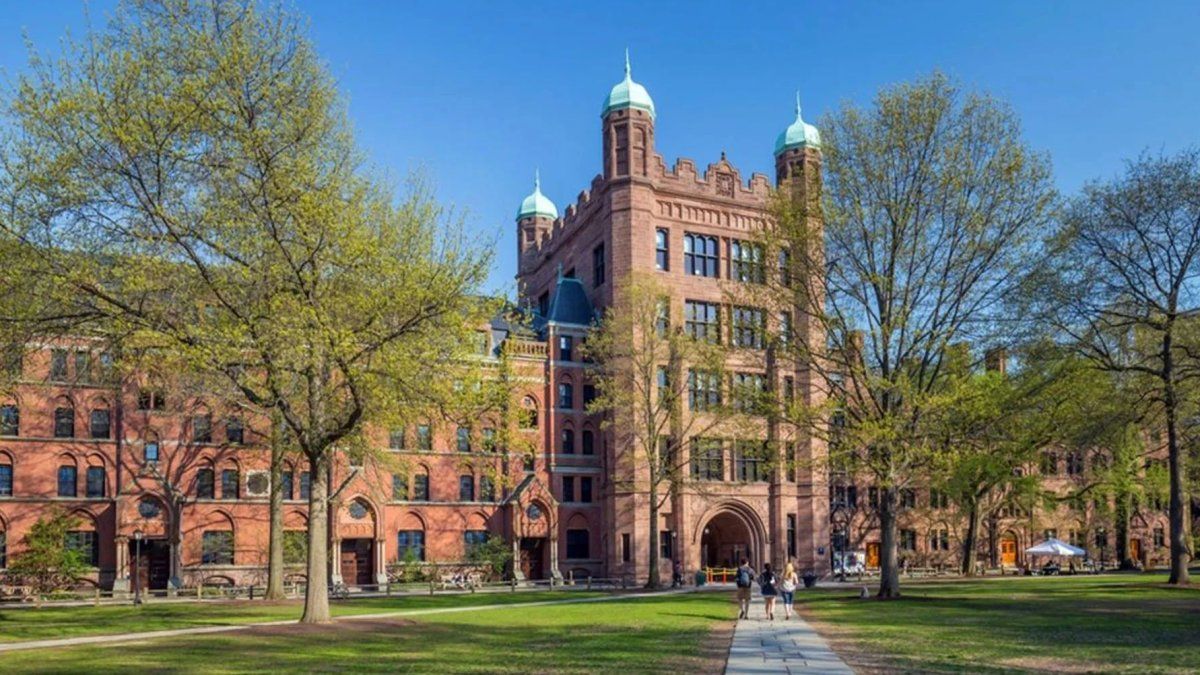“Universities are the enemy”, affirmed JD Vance -As a mere detail, lawyer for Yale’s Law School -, in various conferences before he was chosen as vice president of the United States. It has not been an isolated mention or a mere furcio. The current Republican government tries to demonstrate it at every step it takes.
Many of the measures taken by the government of Donald Trump Since he assumed power – from financing cuts and freezing research funds, through the detention and deportation of students and teachers with visa or residence permit, in addition to a series of threats (abolition of the Ministry of Education, an agency that guarantees that public universities comply with the laws that protect vulnerable students, among other functions) and unb radical ”and promotes a” patriotic “education) – seem thought to Sojuzgar, or directly destroy, to the American university system as we know it to this day.
The government posture simply reflects, explicitly, what was only a careful control variable: the distrust of the American right towards the country’s intellectual centersto those who see it as progressive indoctrination nests – but rather of political uprising and moral perversity -. Pro-Palestinian protests are a clear example of the reading that the Government has on the spaces ‘librated to subversion’.
This novel ‘anti -communist witch hunt’, which brings reminiscence to the last century, has as allies, on the one hand, to the fear of universities (rationally founded, under a government that does not hesitate to take direct reprisals to whom it opposes – be it a person, an institution or a country -), but it is also the desire of them to avoid any type of negative advertising for another type of private financing – including wealth Potential students capable of paying astronomical registration -.
It is that the competition between universities grows proportionally as it loses the contributions of the State: all universities, public and private, have a strong economic dependence on the government, whose agencies not only finance thousands of research projects – only the National Institute of Health spends 35,000 million dollars per year – but also support the higher education system, with 135,000 million dollars in scholarships and loans for graduate and graduate students.
This context of financial precariousness, which in turn enhances the fierce competition, could explain the lack of solidarity and collective action, but also implies that many of the decisions on the campus of the United States are taken, or stop taking, depending on the “university brand”. And given that what universities sell today seem to not be, in the first instance, an education but a cultural capital – a promise of social progress, the realization of aspirations, access to an alumni network – what ends up importing, more than anything, is to project prestige, success and excellence.
We can blame the university administrations for their neoliberal, bureaucratic and marketing logic; But, after all, they are within a broader economic system from which it is difficult to ‘get the feet out of the dish’. And thus work. A clear example is that the management bodies of universities do not dare to disobey the government, no matter how unconstitutional their actions are; But they also not allow students to disobey the internal statutes of the houses of study.
We already talk about the causes, so we are now going to what printed a greater seriousness to the situation: obstacles to the main mission that higher education has, such as investigating, questioning, learning, arguing, and dissenting. It is clear that in the United States (and in most land countries that want to be resilient and provide dignity to its inhabitants), higher education is still a centerpiece of their economic and cultural power.
And within this scheme, social sciences are the axis of the attack. There, ideas about true freedom are studied: that which works on the socio-economic development of peoples, the search for a model with greater equity of opportunities under an environmental sustainability scheme, or being able to achieve justice without vices of corruption as an institutional axis to find citizen consensus.
For this logic the current republican policy is dangerous. These do not want to hear about climate change, or statistics that demonstrate the virtuous effect for the population of a well -administered state. On the contrary, with a foul and aggressive vocabulary -but above all erroneous -, they call anyone who thinks different from ‘communist’, or those who support policies that defend minorities or the weak as ‘anti -naturalist and anti -nationalist’.
For this they usually ‘put a lot of noise’ that prevents all political intelligibility, all simple but effective understanding, any model that includes, without empty lies or foundations, to the interlocutors. “We are going to financially drown the universities that contribute to the Marxist assault on our American heritage and Western civilization itself,” said the current president of the United States. And here I would like to take the words of the great social scientist Mark Fisher, who argued that in current capitalism, it is lived in a “general atmosphere that conditions and regulates education, and that acts as an invisible barrier that prevents genuine thinking and action.”
I want to conclude by maintaining that the most conservative right is more than clear: to achieve definitive material victory, it is necessary, inevitably, cultural victory. For this, they must not only prevent the possibility that people determine their own lives and behave more autonomously; but, in addition, they have to ram them in their minds that the solution to the dilemmas of their lives are not found in rational scientific understanding based on the education of excellence, but on the individual effort in the image and likeness of them, the rich and powerful, so that, once, ‘the now poor and excluded can sit on their same table, reach that desired place’.
Although we know that, in most cases, this utopian model will only end up being in its imagination: a long -term horizon indicates that, under a dire vicious circle, the destitute, marginalized and anesthetized, they will only seek to defend with nails and teeth what they possess.
Economist and Doctor of International Relations. Twitter: @kornBlumpablo
Source: Ambito
David William is a talented author who has made a name for himself in the world of writing. He is a professional author who writes on a wide range of topics, from general interest to opinion news. David is currently working as a writer at 24 hours worlds where he brings his unique perspective and in-depth research to his articles, making them both informative and engaging.




